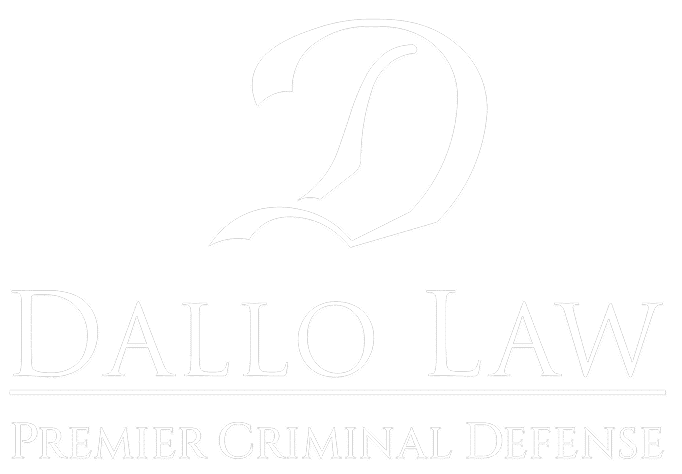Oakland County Uttering & Publishing Attorney
Helping Clients Accused of Forgery Crimes
If you have been charged with “uttering and publishing,” you could face spending time in prison or jail and be ordered to pay steep fines. Additionally, because uttering and publishing is a felony offense, you could be branded as a convicted felon. Being convicted of a felony means you may lose many of your civil rights, including being able to serve on a jury, vote, or legally own or possess firearms.
Furthermore, because uttering and publishing generally means presenting false or counterfeit documents, many potential employers may consider you dishonest and pass you over during the hiring process.
Therefore, anyone charged with having or attempting to pass off forged, altered, or counterfeit documents must immediately hire a criminal defense attorney. At Dallo Law, our skilled defense attorney can professionally evaluate your case and determine a legal strategy to protect your rights and freedom.
Contact our law firm to schedule your first consultation with our Oakland County uttering and publishing lawyer so we may discuss your case. Office visits are by appointment only; consultations are also available over the phone or via video conference.
What is Considered Uttering and Publishing Under Michigan Law?
Under Michigan law, uttering and publishing is a financial crime that is charged as a felony offense. The crime of uttering and publishing occurs when an individual presents a false or counterfeit record to another with the intent to defraud them. Although many people mistakenly believe that uttering and publishing only applies to check fraud or counterfeit notes, the law is more specific and goes into further specifics.
The Michigan penal code specifies different offenses that the state considers uttering publishing based on the document that was used to conduct illegal activity.
Other examples of uttering and publishing include fraudulently using financial transaction devices. Financial transaction devices are legal terms for credit or debit cards and can apply to gift cards. Anyone who attempts to create forged, altered, counterfeit, or forged financial transaction devices to commit retail fraud or other offenses can be charged with a crime.
Finally, anyone knowingly producing a false, forged, altered, or counterfeit legal document can also face legal consequences.
What are the Potential Penalties That Individuals May Face for Altered Forged or Counterfeit Documents?
Michigan law takes a tough stance on crimes that include altered, forged, or counterfeit documents. Aside from check fraud or currency that is counterfeited, other documents that are often altered or forged include:
- Promissory notes
- Bank bills
- Insurance policies
- Public records
When considering the legal penalties for uttering and publishing, it is essential to remember that the crime is considered a felony offense punishable by a maximum sentence of up to 14 years in prison and a $10,000 fine.
Many individuals are unaware that the consequences of writing a bad check can result in being charged with a felony offense. For example, under the Michigan penal code, writing a No Account check is a felony punishable by up to two years in prison. Furthermore, if the defendant has prior convictions for writing an insufficient fund (NSF) check and the amount was over $500, they can be charged with a felony. However, judges have the legal discretion to sentence defendants to up to five years of probation.
No one likes the idea of prison or jail time. One way to avoid jail is to hire a knowledgeable attorney to negotiate with the prosecution to have the charges dropped or reduced.
Dallo Law has had extensive experience helping countless clients with their legal needs and will work to ensure you are treated fairly.
Why Do I Need to Hire a Criminal Defense Attorney if I Have Been Charged With Uttering and Publishing?
Many people who have been charged with a crime mistakenly believe that they can handle their case independently, especially if the offense involves check fraud or illegal use of financial transaction devices.
However, as with any other criminal offense, hiring a criminal defense attorney who can assist you with the confusing legal process is always in your best interest. Some of the most significant benefits of hiring a defense attorney include:
- Provide professional evaluations: An attorney can review the evidence to determine the strengths and weaknesses of the state’s case
- File legal paperwork: Your defense attorney can file legal paperwork and argue that evidence should be excluded, or your charge dismissed
- Negotiate with the prosecution: A skilled lawyer can negotiate with the prosecution to try and have your charges dropped, reduced, or request alternative sentencing such as probation
- Take your case to trial: If the state is unwilling to offer a favorable plea deal, your lawyer can take your case to trial to try and obtain a not-guilty verdict
What Makes Dallo Law the Right Choice to Help Me With My Case?
Regardless of the charges you are facing, you need a defense attorney who is fearless when it comes to standing up for your rights. When you come to us for help, we strive to provide you with quality legal representation that will provide favorable results.
Unlike other law firms that focus on profits, we give each case immediate attention. Our dedicated team works diligently to create innovative legal strategies to resolve your legal issue as quickly as reasonably possible so you can face the future confidently.
If you have been charged with uttering publishing, do not hesitate to hire a defense attorney like J Dallo, who can provide you with the skilled legal counsel you deserve.
Contact our Oakland County law office at 248-290-9962 to schedule your first consultation. Dallo Law accepts clients throughout the greater Oakland County and Macomb County area, including Clinton Township, Romeo, Fraser, New Baltimore, New Haven, Warren, Sterling Heights, Pontiac, Troy, Waterford Township, Clarkston, Southfield, Royal Oak, and Bloomfield Hills.


